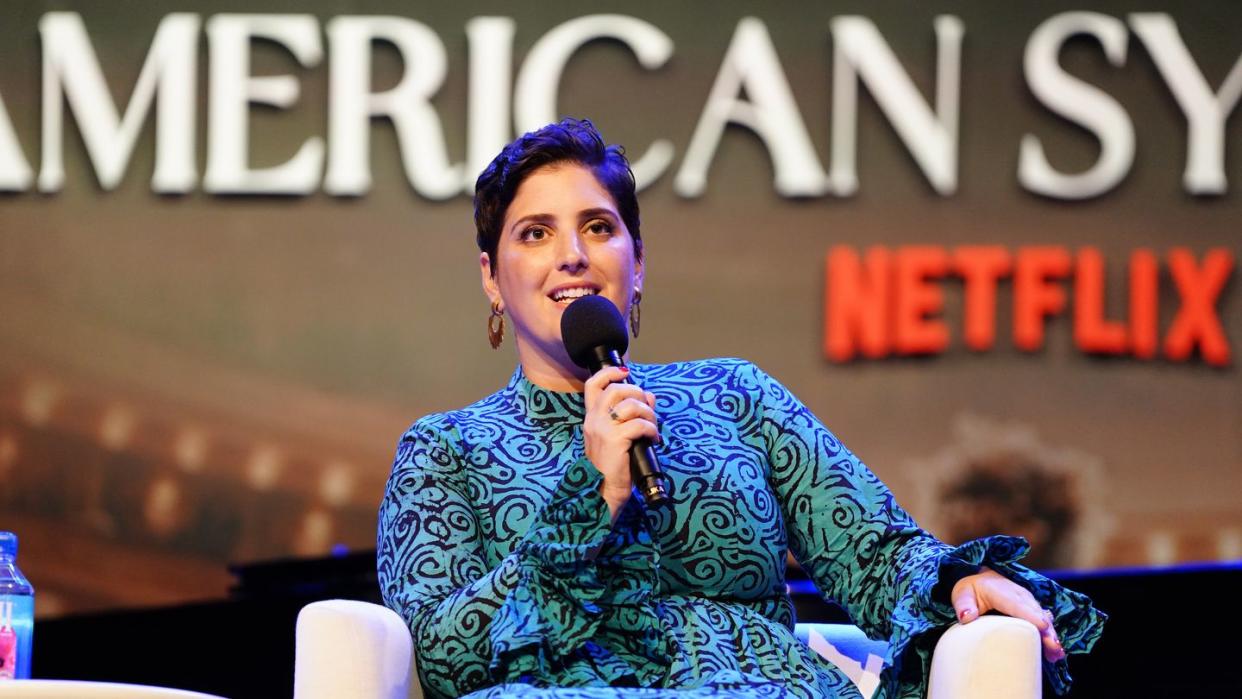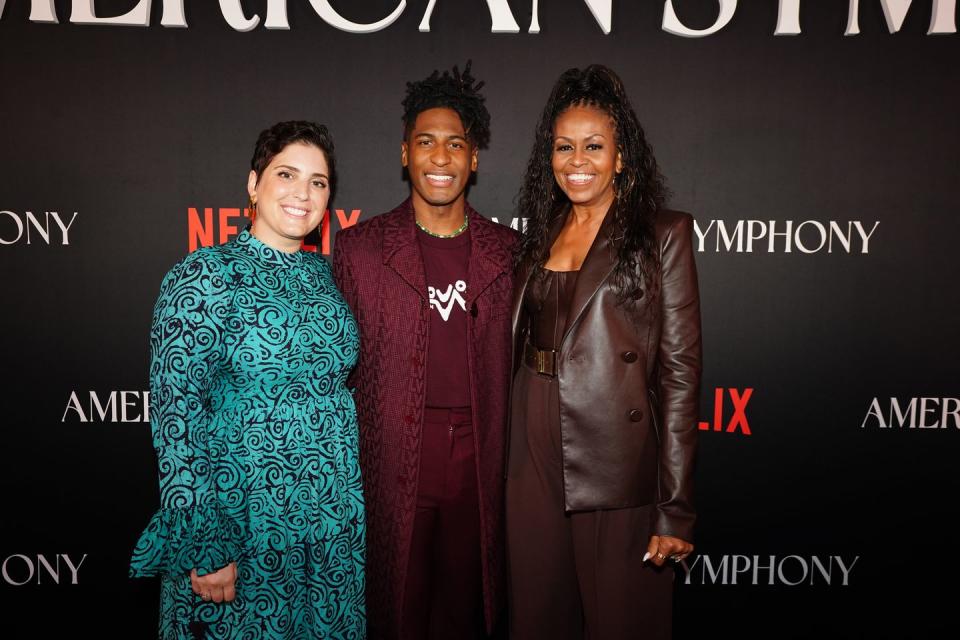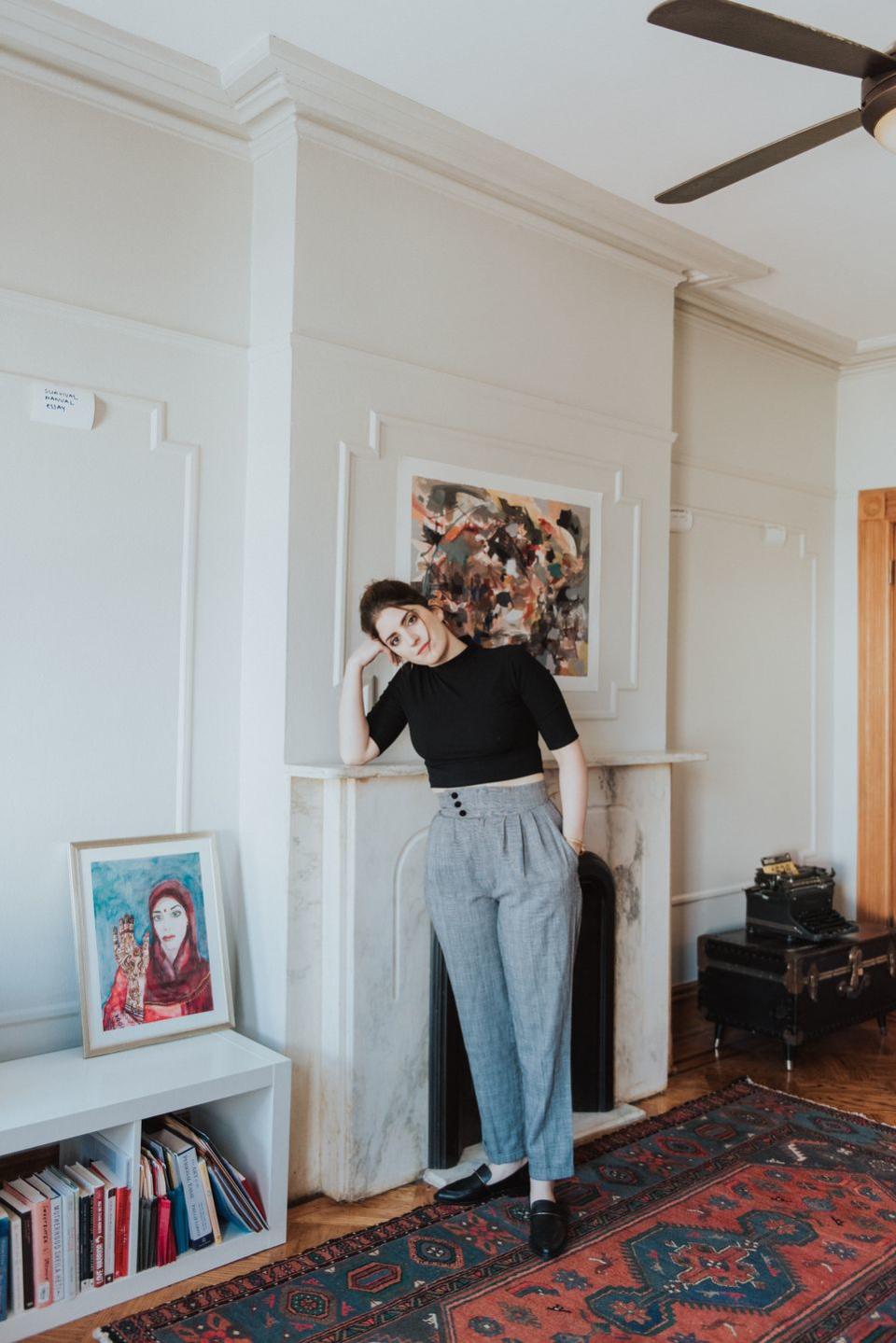For Suleika Jaouad, Survival Is a Radical Act

- Oops!Something went wrong.Please try again later.
- Oops!Something went wrong.Please try again later.
- Oops!Something went wrong.Please try again later.
"Hearst Magazines and Yahoo may earn commission or revenue on some items through these links."
Most couples’ love stories don’t generate Oscar buzz. But Suleika Jaouad and Jon Batiste aren’t the average couple.
Jaouad is a journalist, an advocate, and the author of New York Times bestseller Between Two Kingdoms: A Memoir of a Life Interrupted, about being diagnosed with a rare from of leukemia at age 22. Batiste, her husband, is a Grammy- and Academy Award–winning songwriter and composer. In Netflix’s new documentary American Symphony, directed by Matthew Heineman and produced by former U.S. president and first lady Barack and Michelle Obama’s Higher Ground Productions, audiences are given an intimate look into one of the hardest years in their relationship.
In 2022, Batiste was riding a career high; he had been nominated for a staggering 11 Grammys and was working on composing a one-night-only symphony at Carnegie Hall. Jaouad’s memoir was a success, and she had launched a pandemic-inspired writing project called Isolation Journals.
Then they learned that her leukemia had returned. To treat it, she would have to undergo a second bone marrow transplant.
American Symphony melds together many different stories: of marriage, of music, of balancing responsibility and professionalism in the midst of personal strife. Of course, when they began filming their day-to-day lives, the couple didn’t know how 2022 was going to pan out. They were essentially making home movies, not realizing that in the end, the footage—which captures everything from Jaouad’s treatment to Batiste’s therapy sessions—would create a deeply moving, feature-length documentary.
“So often when you’re struggling, be it from anxiety or an illness or some other kind of loss or heartbreak that brings you to the floor, you feel like you’re the only person in the world who’s suffering in that way,” Jaouad tells Harper’s Bazaar in a moody corner of the Hotel Saint Vincent in New Orleans’ Lower Garden District.
She is wearing a teal patterned dress from Nigerian brand Busayo and doesn’t show the slightest hint of exhaustion, despite the events of the previous night, when she and her husband celebrated the premiere of American Symphony here in Batiste’s hometown. Michelle Obama introduced the film to an audience that included family and friends, locals, and hometown heroes like rapper Juvenile. A line wrapped around the block to get into the Orpheum Theater, where the attendees were eager to celebrate the couple.

“To pull that curtain back and to share that wasn’t an easy thing to do, but it was a worthwhile thing to do,” Jaouad continues. “We’re both really happy that this film exists and that it’s reverberating.”
Cozied up next to his wife in a cocoa-colored glitter pinstriped corduroy number, Batiste echoes her sentiments. “We didn’t think about the film being everywhere, partly because the moments we were living through—the wedding, the transplant, all of these milestones of life—you have to be present in that. We didn’t know if it would be a happy ending,” he says. “And then the pressures of the professional side of things piling on at the same time … We weren’t thinking about making a movie. We were thinking about making it through the day, and that was something that we decided to keep filming.”
What is maybe most remarkable to witness, watching the film, is Jaouad’s tenacious urge to create. During her first leukemia diagnosis, she documented the ups and downs of treatments in her New York Times column, “Life, Interrupted,” and eventually her book. The second time around, it was harder for the author to focus on writing, so she leaned into watercolors and painting, inspired by the Mexican artist Frida Kahlo. It wasn’t about being productive, especially at a time when she needed to prioritize her health. It was more about making the most of the in-between moments.
“We try as best as we can to create unstructured time where these creative projects can emerge without expectation of outcome. Painting was just a thing I was doing for myself,” Jaouad explains. “In a weird way, it was a blessing to become aware of my mortality at such a young age, because the truth is that life is a terminal condition for all of us, right? I’m not special. I’m no different to anyone else, but I live a little closer to the veil.
“When this happened to me, especially the second time, it was a very clear rerouting of priorities. I had such limited energy during the bulk of my bouts with cancer treatment that I had maybe about three good hours every day,” she says. “When you have only two to three good hours in a day, you have to get very clear on what is most important to you—what you want to do in those hours and who you want to spend it with and how.”

Having relived the events depicted in American Symphony a handful of times now, in her writing and the making and watching of the film, Jaouad makes it clear that the woman featured in the documentary is not the entirety of who she is. Leukemia and bone marrow transplant advocacy have become a foundation of her work, especially once she realized that being mixed-race lowers the odds of finding a donor match. (While a white patient normally has around a 79 percent rate of success finding a donor, being a person of color can send those chances plummeting as low as 29 percent.) But sickness is not her identity, and it’s not what she wants to be defined by.
If anything, she views the practice of survival as creative act, like the words she writes or the pictures she paints. “In our household, we see creative projects as a means of bringing people together,” Jaouad says. “It’s a way to counteract the constant flow of hardships and traumas that are happening in the world and in our lives. These last five, six, seven years in our world have been heavy. Survival then becomes a way to thrive and to live and to be in community, and to grow and learn and evolve. Jon comes from generations of musicians. My mom is a painter. My dad is a professor and writer. We had those early blueprints for how art can be a force of alchemy, of transforming whatever it is that you’re being presented with into something meaningful and unique and beautiful.”
Continuing to create is a focus for Jaouad moving forward. She is writing two more books. Her friends are encouraging her to get into directing. She and Batiste are working on building a robust bone marrow donor registry for people of color. She also just wants to exist: to travel and lounge at home and play with her dogs, because planning the little moments is just as important as taking care of the big ones.
“When you live with a life-threatening illness, daydreaming about the future can feel like a dangerous exercise. It feels risky—it feels like the kind of hope that might break your heart,” she says. “But I know that it’s important to make plans for the future, to imagine myself existing in that future. In some ways, that kind of hope can feel risky, but it also feels radical. I’m forcing myself into that space of radical, risky daydreaming.”
You Might Also Like

